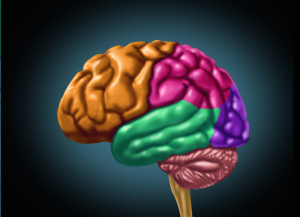Why Your Brain Is Important In Dentistry (part 1)
Why Your Brain Is Important In Dentistry
– By Dr Nav Ropra.
Your dentistry is governed by your skill set which is governed by your brain. So, it is vital that your brain is running on optimum efficiency and effectiveness. Just like driving your car with optimum performance in order to consume less fuel to arrive at your final destination, your brain wants to work effectively in order for you to fulfil your life’s purpose. You are a purpose fulfilling organism and anything that helps you to do this, will give you the competitive edge in your own life.
Your brain is the most amazing and powerful organ of the human body and centre of the nervous system. It has the power to process vast amounts of information at tremendous speeds and decides what you think about or act upon. It decides what your life is about.
From individuals, to dental practices, the stock exchange and governments, the whole of humanity is run by brains. It can give you the competitive advantage when making decisions about anything in life from what to eat, to finances or relationships. So having a healthy brain is essential to your survival, how successful you are in life and will determine the legacy you leave behind when you are gone.
The typical brain contains between 86 billion neurones (a nerve cell which processes and transmits information) which are connected by synapses (a structure which allows communication between neurones) to several thousand other neurones. The brain also has protector cells called glial cells and blood vessels. The human brain can be divided into forebrain, midbrain and hindbrain. The brain receives sensory input and gives off motor output and can be broadly divided as follows:
• Frontal lobe: thought, learning and behaviour
• Parietal lobe: processing sensory experiences and understanding
• Temporal lobe: memory and certain emotions
• Occipital lobe: processing visual information
• Cerebellum: movement, balance and some reflex actions
• Brain stem: breathing, heart rate, blood pressure, body temperature
Your brain is important in not only dentistry, but your life. Abuse of this precious organ can lead to non-reversible effects and that will impact your dentistry, your income, your health, your friendships and your relationships. In order to fulfil your life’s purpose, it would be wise to be aware of the importance of your brain and regulate it and maintain it much like you do with anything that is valuable. Overcome the transient desires for short term gratification for long term fulfilment.
Here are some powerful tips that can help you to fulfil your dreams and keep your brain and you on purpose
1. Get a reasonable amount of sleep
Sleep helps the brain to rest and is absolutely necessary for concentrating especially when seeing patients the next day. Dentistry is a fine and accurate profession and concentration can only be achieved with a good night’s sleep. Sleep also helps the brain archive memories. 7-9 hours per night is recommended.
2. Protection from injuries
The brain is very soft and is protected by a hard bony skull. Traumatic brain injury can have wide ranging physical and psychological effects which may not always be apparent immediately. Knocks and injuries to the head should be avoided, even with helmets.
3. Quit drugs, alcohol, cigarettes
Anything which pollutes your body will have a detrimental effect on your brain cells. Reduce these and ideally change these detrimental habits. When practicing dentistry, ensure good ventilation and clean air to minimise exposure to toxic substances like organic solvents, lead and mercury which can harm the brain.
4. Reduce obesity
Excess fat stores cause inflammation and stores pollutants. It is postulated that obesity is related to low-grade inflammation which could be linked to a reduction in memory. Check your BMI and reduce your excess fat from real to ideal. Eat healthy foods with the correct amounts of poly- and mono- saturated fats. Avoid foods with trans and saturated fats and reduce your portion sizes. Step away from the table when you feel about 80% full and eat slowly so your body can catch up.
5. Deal with sleep apnoea
Anything which starves the body from oxygen will ultimately starve the brain from it too. This can cause damage in the long run. Obstructive sleep apnoea impacts brain functioning and changes and damages white brain matter, axons and glial cells. Diagnose obstructions to effective breathing by a specialist in that field and have them treated.
6. Quit energy drinks/caffeine
Despite the short term buzz that these drinks can offer, they will dehydrate you and cause headaches, increase fat and cortisol production. Caffeine in energy drinks and tea or coffee, affects the adenosine receptor causing the nerve cell to speed up instead of slow down. It also injects adrenaline into your system and affects dopamine production to make you feel good. Withdrawal from these substances can include symptoms like: sleepiness, irritability, depression, lethargy, lack of concentration.
7 Regulate diabetes and hypertension
Altered blood flow to the brain will reduce its efficiency and cause atrophy of the brain. Damage to blood vessels and brain-cell degeneration are the two main effects if these conditions are not regulated. The brain does not like long term elevated blood sugar and it makes the brain sticky and act slowly. It is essential that these systemic diseases are regulated and controlled well.
8. Increase exercise
Exercise is needed for the body to remain active and reduce chronic illnesses. Exercise also assists in producing new neural connections, increases oxygen to the brain by increased heart rate, and releases a plethora of hormones which assist in brain cell growth. A minimum of 20 minutes exercise which elevates heart rate 3 times per week is recommended.
9. Balance your hormones
Testosterone and oestrogen levels are important hormones linked to memory and to the brain neurotransmitter acetlycholine. Studies have shown that specific areas of the brain have increased blood flow and oxygen when testosterone and DHT (dihydrotestosterone) are regulated. This can effect behaviour and memory. Thyroid function should also be checked to prevent any underlying disorders causing the body and the brain to become tired and fatigued.
10. Omega 3 fatty acid intake
Electrical impulses travel from one neurone to another and need to cross over the synapses in-between them and through the cell membranes. Cell membranes contain about 20% omega 3. Foods which contain omega 3 include oily fish, salmon, sardines and are useful for brain function. It is essential that you eat the recommended amounts of these foods, or have supplements for them.
(Part 2 can be found here: http://www.drropra.com/brain-important-dentistry-part-2/)

